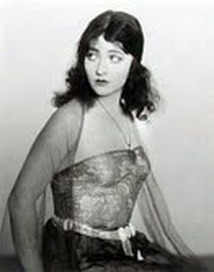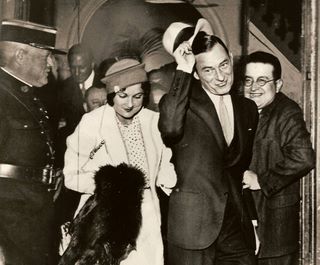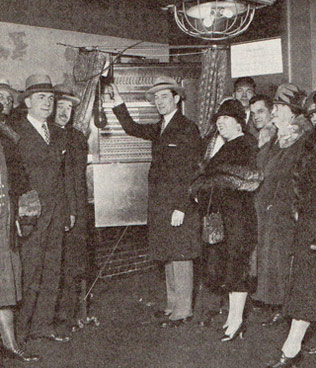Betty Compton and Jimmy Walker
1- Betty.
Betty Compton (May 13, 1904 – July 12, 1944) was a stage actress who married New York City mayor Jimmy Walker in 1933. She was born as Violet Halling Compton in Sandown, Isle of Wight (England).
In 1910, when Betty was 6 years old, the Compton family moved from the Isle of Wight to the remote northwestern part of the Province of Saskatchewan, Canada, finally settling in Toronto where Betty started her theatrical career. At some point, the lure of the bright lights necessitated a move to New York where the aspiring actress ultimately found stardom on Broadway after appearing as a member of the Ziegfeld Follies in a number of high class vaudeville roles, culminating in a prominent role in the original stage production of Funny Face (1927) alongside Fred and Adele Astaire, as well as Oh, Kay! in 1926.
Betty was married a total of four times. Her first marriage was to a man 11 years her senior, Toronto-based barrister Charles Stanley Rees Riches. They were married in Toronto on 19 October 1922 when Betty was just 18 years old. Charles Riches later cited desertion by Betty as grounds for divorce. Her second marriage was to Paramount Studios movie director Edward Duryea Dowling in February of 1931. This marriage ended in divorce the following month after Betty obtained a "quickie" divorce in Mexico on the grounds of cruelty. This marriage took place whilst Betty was in the throes of an affair with the man who was Mayor of New York at the time, James John Walker; although the world press always referred to Betty and Jimmy as "friends" when in fact they were a lot more than that. They were going through a rough patch when Betty decided to marry Edward Dowling. Mayor Walker was married to Janet Allen Walker at the time, and had been since 1911, but rumours were rife as to his numerous affairs and a penchant for showgirls, in particular.
On 1 September 1932, Mayor James (Jimmy) Walker was forced to resign office when Governor Franklin Delano Roosevelt pressured him into doing so. Eight days later he set sail onboard the Italian ship Conte Grande for Europe. Betty was waiting for him in Paris.
From her home in Miami, Florida, Janet Allen Walker finally sued for divorce, claiming that Jimmy had deserted her on 15 October 1928. Enough was enough. The granting of a divorce then left the way clear for Jimmy and Betty to wed. They were married on 19 April 1933 in Cannes, France. Their European exile lasted until 1935 when they returned to New York City, once they considered the danger of criminal prosecution appeared remote. Neither would, however, return to public life. Jimmy was President of Majestic Records for a while, as well as being employed as impartial chairman of the garment industry. Betty opened a flower shop on Madison Avenue. They adopted two children; one boy and one girl. Unfortunately, this marriage was not to be "third time lucky" for Betty. She filed for divorce in February of 1941, charging extreme cruelty against the former mayor.
Betty's final marriage was to civil engineer and West Point graduate, Theodore T. Knappen whom she met in South America. They married in May of 1942, and became the proud parents of a baby boy in early 1944. Sadly, Betty's happiness was to be short lived. She died of breast cancer in Doctor's Hospital, Manhattan in July of 1944, aged just 40. More than 350 people attended her funeral service in New York which was led by an official of the Church of Christ Scientist.
 |
 Wedding Betty and Jimmy in Cannes (France) in 1933 |
2. Jimmy
James John Walker, often known as Jimmy Walker and colloquially as Beau James (1881 – 1946), was Mayor of New York City from 1926 to 1932. During a corruption scandal he was forced to resign.
Walker was the son of Irish-born William H. Walker (1849–1916), a carpenter and lumberyard owner who was very active in local politics as a Democratic assemblyman and alderman from Greenwich Village, belying certain accounts of Walker's childhood that stated he grew up in poverty. Walker was not the best of students and dropped out of college before eventually graduating New York Law School in 1904. Walker's father wanted him to become a lawyer and politician. Walker at first decided that he would rather write songs and be involved in the music industry but he eventually entered politics in 1909 and subsequently passed the bar exam in 1912.
Walker was a member of the New York State Senate from 1915 to 1925 and was Minority Leader. In the Senate he heavily opposed prohibition.
After his years in the Senate, Jimmy Walker set his sights on the 1926 election for Mayor of New York. Beginning with the 1925 Democratic Primary for Mayor, Walker knew that to ultimately win the mayoral election he had to defeat John F. Hylan who was the current Mayor of New York. Walker himself had to be willing to change some of his more unscrupulous ways or in the least, provide a cover for his indiscretions. As with many of the things in Jimmy Walker’s life, he chose the latter. Instead of ending his visits to the speakeasies and his friendships with chorus girls, he took those activities behind the closed doors of a penthouse funded by a friend. Walker defeated Hylan in the Democratic primary and became Mayor of New York.
In his initial years as mayor, Walker saw the city prosper and many public works projects gain traction. In his first year as Mayor, Walker created the Department of Sanitation, unified New York’s public hospitals, improved many parks and playgrounds and guided the Board of Transportation to enter into contract for the construction of an expanded subway system.
Walker’s political rise in New York can be seen as representative of the states ascendance into being a “wet” state. His affairs with “chorus girls” were widely known, and he left his wife, Janet, for showgirl Betty Compton.
Walker won re-election by an overwhelming margin in 1929. Walker’s fortunes turned downward with the economy after the stock-market crash of 1929. The Cardinal Archbishop of New York, denounced him, implying that the immorality of the mayor, both personal and political in tolerating “girlie magazines” and casinos was a cause of the economic downturn.
Increasing social unrest led to investigations into corruption within his administration, and he was eventually forced to testify before the investigative committee. Walker caused his own downfall by accepting large sums of money from businessmen looking for municipal contracts.
With New York City appearing as a symbol of corruption under Mayor Walker, Governor Roosevelt knew he had to do something about Walker and his administration. Knowing that the State's constitution could allow an elected mayor to be removed from office, Roosevelt felt compelled to act on this. Facing pressure from Governor Franklin Delano Roosevelt, Walker eluded questions about his personal bank accounts, stating instead that the money he received were “beneficences” and not bribes. He delayed any personal appearances until after Roosevelt’s nomination for President of the U.S. was secured. It was at that time that the embattled mayor could fight no longer. Months from his national election, Roosevelt decided that he must remove Walker from office. Walker agreed and resigned on September 1, 1932, and went on a grand tour of Europe with Betty Compton, his Ziegfeld girl. Walker stayed in Europe until the danger of criminal prosecution appeared remote. There, he married Betty Compton.
After his return to the United States, for a time Walker acted as head of Majestic Records that included such popular performing artists as Louis Prima and Bud Freeman. He died in November 1946 at the age of 65 of a brain hemorrhage. Betty had died of breast cancer (in Manhattan) on July 12, 1944, aged 40.
 With Ally (wife #1) in 1926, after becoming major of NYC |
 With Betty (wife #2) at the Whitehouse in 1937 |